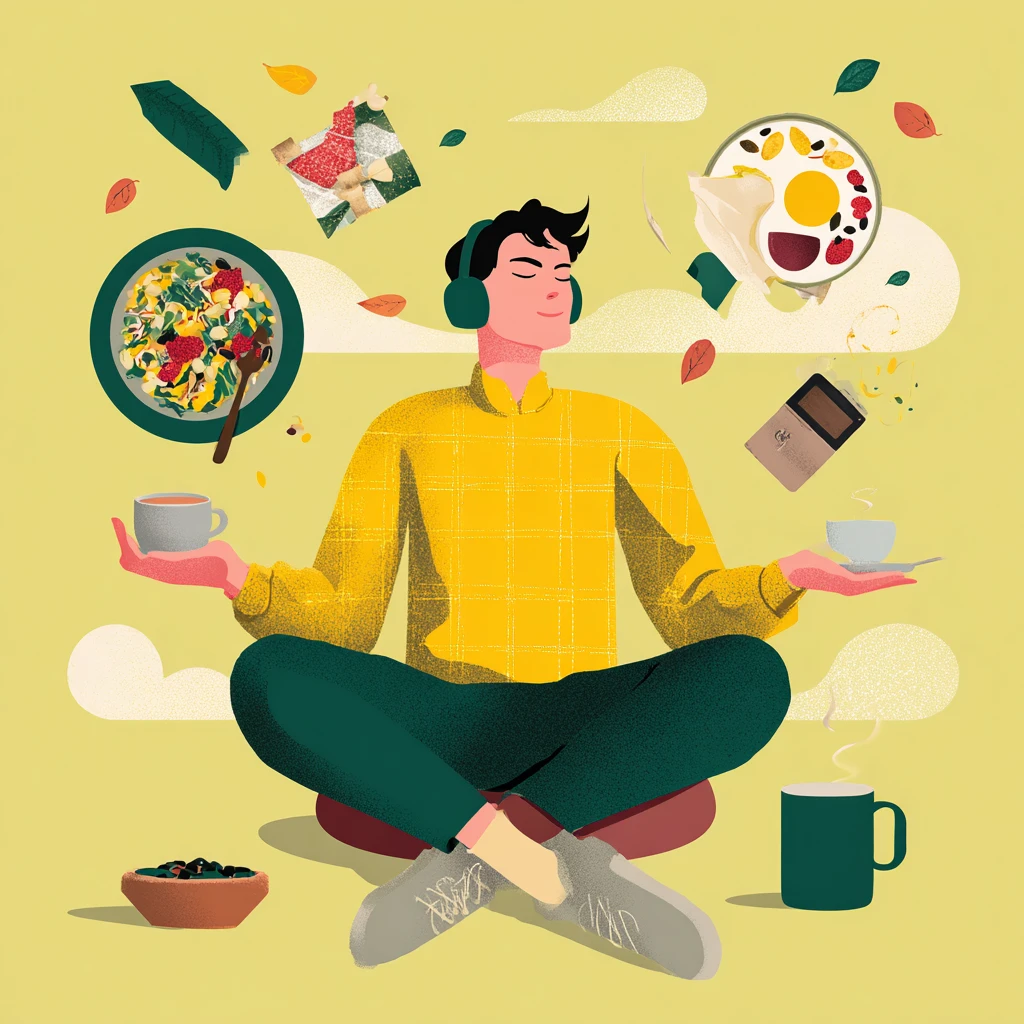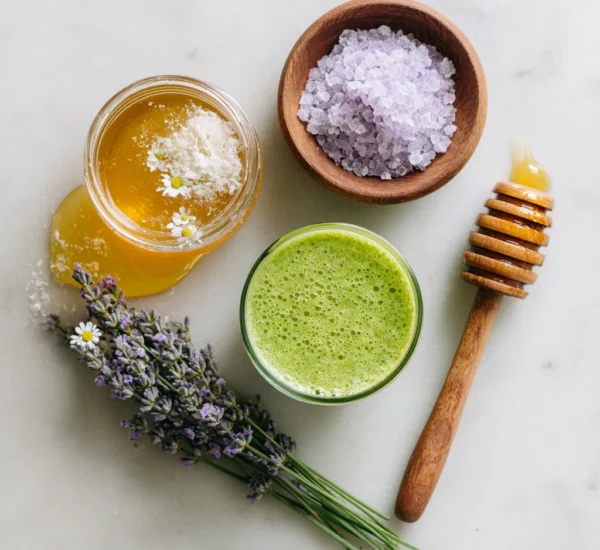Daily Choices That Support a More Relaxed Lifestyle
In today’s fast-paced world, finding moments of calm can feel like a luxury. Yet, relaxation is not a privilege, but a necessity for our mental and physical well-being. Cultivating a relaxed lifestyle doesn’t require drastic changes; it’s about making conscious daily choices that prioritize peace and reduce stress. This article explores practical strategies to help you weave relaxation into the fabric of your everyday routine.

1. Mindful Mornings: Setting the Tone for a Calmer Day
How you start your day significantly impacts your overall mood and stress levels. Rushing out the door to the blare of alarms often leads to a feeling of being overwhelmed. Instead, consider these mindful morning practices:
Wake Up Gradually
Avoid harsh alarms. Opt for a sunrise alarm clock or a gentle, melodic sound. Waking up gradually allows your body and mind to transition peacefully, reducing the shock and anxiety often associated with abrupt awakenings.
Hydrate and Nourish
Begin your day with a glass of water. Dehydration can contribute to fatigue and irritability. Follow this with a healthy breakfast that includes protein, fiber, and healthy fats. Fueling your body with nutritious food provides sustained energy and helps stabilize your mood.
Practice Gratitude
Take a few moments to reflect on what you’re grateful for. This simple practice shifts your focus from anxieties to positive aspects of your life, fostering a sense of contentment and optimism. Consider keeping a gratitude journal or simply expressing your appreciation to a loved one.
Mindful Movement
Engage in gentle movement like stretching, yoga, or a leisurely walk. Physical activity releases endorphins, which have mood-boosting effects. Avoid strenuous workouts that can increase cortisol levels early in the day.
Limit Screen Time
Resist the urge to check your email and social media first thing in the morning. Exposing yourself to a barrage of information and demands can immediately trigger stress. Dedicate the first hour of your day to yourself, focusing on activities that promote relaxation and well-being.
2. Cultivating Calm Throughout the Day: Small Habits, Big Impact
Relaxation shouldn’t be confined to the morning or evening. Incorporating small, mindful practices throughout the day can significantly reduce stress and promote a sense of calm amidst the chaos.
Take Regular Breaks
Stepping away from your work or daily tasks for even a few minutes can make a big difference. Get up and stretch, take a short walk, or simply gaze out the window. These breaks help prevent burnout and improve focus.
Practice Deep Breathing
Deep breathing exercises are a powerful tool for managing stress and anxiety. When you feel overwhelmed, take a few slow, deep breaths, focusing on expanding your diaphragm. This stimulates the parasympathetic nervous system, which promotes relaxation.
Mindful Eating
Pay attention to your food and the act of eating. Avoid eating while distracted by your phone or computer. Savor each bite, appreciating the flavors and textures. Mindful eating promotes digestion and reduces the likelihood of overeating.
Digital Detox
Schedule specific times to disconnect from technology. Constant exposure to screens and notifications can be overwhelming. Designate periods where you turn off your phone, close your laptop, and focus on the present moment.
Connect with Nature
Spending time in nature has been shown to reduce stress and improve mood. Take a walk in a park, sit by a river, or simply tend to your garden. Even a few minutes outdoors can have a restorative effect.
3. Creating a Relaxing Environment: Your Sanctuary of Calm
Your physical environment plays a significant role in your stress levels. Creating a relaxing home and workspace can contribute significantly to a more relaxed lifestyle.
Declutter and Organize
A cluttered environment can lead to mental clutter. Take time to declutter your home and workspace, getting rid of items you no longer need or use. Organize your belongings in a way that is both functional and aesthetically pleasing.
Incorporate Natural Elements
Bring natural elements into your living space. Plants, natural light, and natural materials like wood and stone can create a sense of calm and connection to nature.
Calming Colors
Choose calming colors for your walls and décor. Soft blues, greens, and neutral tones are known for their relaxing properties. Avoid bright, stimulating colors in areas where you want to relax.
Aromatherapy
Use aromatherapy to create a relaxing atmosphere. Essential oils like lavender, chamomile, and sandalwood have calming effects. Use a diffuser or add a few drops to a warm bath.
Create a Designated Relaxation Space
Designate a specific area in your home as a relaxation zone. This could be a cozy corner with comfortable seating, soft lighting, and calming décor. Use this space for activities like reading, meditation, or simply relaxing.
4. Prioritizing Rest and Rejuvenation: Essential for Long-Term Well-being
Adequate rest and rejuvenation are crucial for maintaining a relaxed lifestyle. Neglecting these aspects can lead to chronic stress, burnout, and a decline in overall health.
Prioritize Sleep
Aim for 7-9 hours of quality sleep each night. Establish a regular sleep schedule, going to bed and waking up at the same time each day, even on weekends. Create a relaxing bedtime routine that includes activities like reading, taking a warm bath, or listening to calming music.
Practice Relaxation Techniques
Incorporate relaxation techniques into your daily routine. Meditation, yoga, and progressive muscle relaxation can help reduce stress and promote relaxation.
Engage in Hobbies
Make time for activities you enjoy. Hobbies provide a creative outlet, reduce stress, and enhance your sense of well-being. Whether it’s painting, gardening, playing music, or simply reading a good book, make time for activities that bring you joy.
Set Boundaries
Learn to say no to commitments that overwhelm you. Protecting your time and energy is essential for maintaining a relaxed lifestyle. Don’t be afraid to decline invitations or delegate tasks when necessary.
Seek Support
Don’t hesitate to seek support from friends, family, or a therapist if you’re struggling to manage stress. Talking to someone can provide valuable perspective and coping strategies.
5. Mindful Evenings: Winding Down for a Restful Night
Just as mindful mornings set the tone for the day, mindful evenings prepare you for a restful night’s sleep. Create a calming bedtime routine to signal your body that it’s time to relax.
Limit Screen Time Before Bed
The blue light emitted from electronic devices can interfere with sleep. Avoid using screens for at least an hour before bed.
Read a Book
Reading a physical book can help you relax and unwind before sleep. Choose a light, enjoyable book rather than something that is stimulating or stressful.
Practice Gentle Stretching or Yoga
Gentle stretching or yoga can help release tension and prepare your body for sleep. Focus on slow, deliberate movements and deep breathing.
Drink Herbal Tea
Certain herbal teas, such as chamomile, lavender, and valerian root, have calming properties that can promote sleep.
Create a Sleep-Conducive Environment
Ensure your bedroom is dark, quiet, and cool. Use blackout curtains, earplugs, or a white noise machine to create a peaceful sleep environment. Maintain a comfortable temperature.
Review Your Day
Before drifting off to sleep, take a few moments to review your day, acknowledging your accomplishments and identifying any areas where you can improve. Let go of any worries or anxieties, trusting that you can address them tomorrow.
By incorporating these daily choices into your routine, you can cultivate a more relaxed lifestyle, reducing stress, improving your overall well-being, and enjoying a greater sense of peace and contentment.

Frequently Asked Questions (FAQ)
Q: How can I find time for relaxation when I'm already busy?
A: Start small. Even a few minutes of deep breathing or stretching can make a difference. Schedule relaxation time into your calendar and treat it as a non-negotiable appointment. Delegate tasks or say no to commitments that overwhelm you.
Q: What if I find it difficult to relax?
A: Relaxation takes practice. Be patient with yourself and experiment with different techniques to find what works best for you. Consider seeking guidance from a therapist or relaxation specialist.
Q: How do I create a relaxing environment on a budget?
A: Decluttering, rearranging furniture, and using natural light are free ways to improve your environment. Add inexpensive plants or natural elements like stones or shells. Diffuse essential oils or play calming music.
Q: Is it okay to watch TV to relax?
A: While TV can be relaxing, be mindful of the content you’re watching. Avoid violent or stressful shows before bed. Opt for lighthearted comedies or nature documentaries. Limit screen time before bed to avoid interfering with sleep.
Q: What are some quick relaxation techniques I can use throughout the day?
A: Deep breathing exercises, stretching, taking a short walk, listening to calming music, and practicing mindfulness are all quick and effective relaxation techniques.



